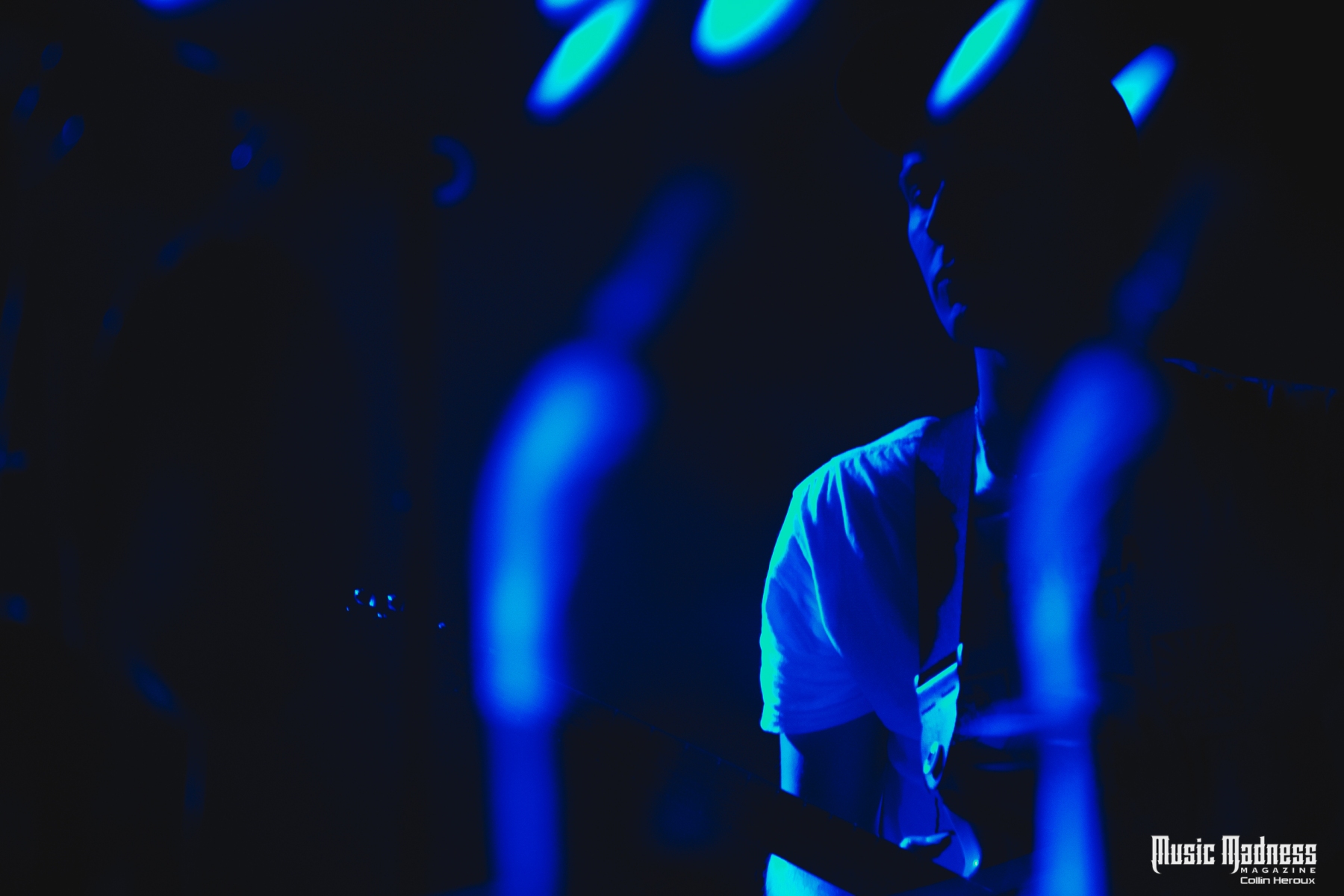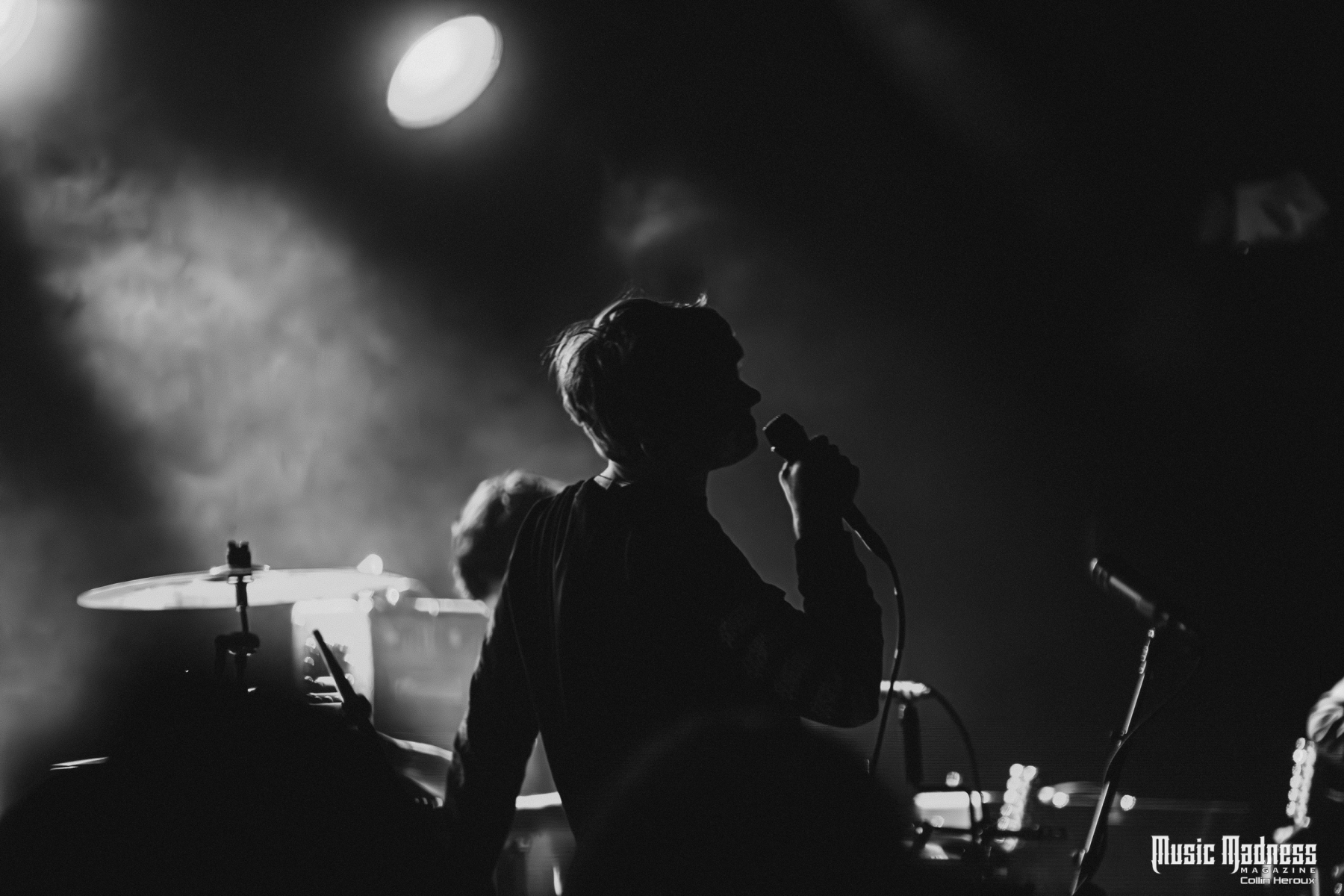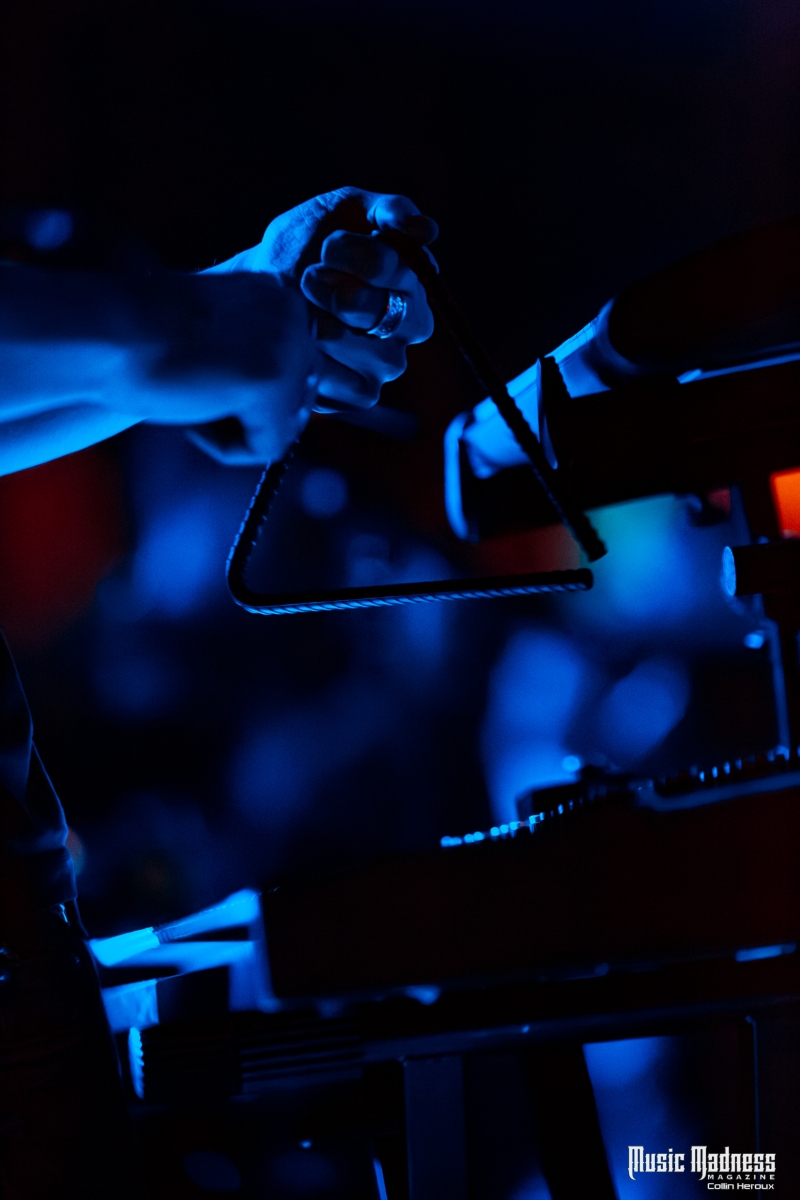
The late 2010s are destined to go down as an impossibly fertile era for guitar music in and around London. This period spawned a massive class of bands who’ve all gone on to become international touring acts, often swirling around that city itself and/or Dan Carey’s Speedy Wunderground label. The latter is the case for Squid, who hail from 90 minutes south in Brighton, but introduced themselves to the world proper with their Town Centre EP on Speedy. After that, they were quickly courted by and signed to Warp Records, which is an interesting – though fitting – home. Warp has its share of guitar-focused artists such as Yves Tumor, but traditionally they’ve been known for their more electronic genre-benders, such as Flying Lotus, Autechre, and Boards of Canada. But in every one of their releases, on their second LP now with 2023’s O Monolith, Squid have demonstrated themselves to be a consistently detail-oriented group of five dynamic explorers.
Squid’s stage plot diagram must be quite the sight – they sprawl out across all the available space in Boston at the Paradise Rock Club: keyboards, modular synths, a miniature gong, a box with four or five different percussion instruments in reach of keyboardist Arthur Leadbetter – and that’s just the left half. Singer and drummer Ollie Judge sits on a platform in the center, giving the impression he’s a starship captain on the main deck of the Enterprise, the timekeeper of what may seem chaotic at times, but is always a perfectly executed sequence. The night features a wealth of songs both from O Monolith as well as its predecessor, Bright Green Field, and begins with a lengthy intro that builds up to the opening pattern from ‘Swing (In A Dream)’, which was the first tease the band gave from their 2023 effort.
O Monolith, by comparison to BGF, is a bit of an understated concoction in places, playing more with dynamics across each song – though there are still opportunities where Judge cuts loose vocally, including the bridge of this tune, which is then vivisected at the end by an imposing bass line that rips it through to the finish. Squid employ a variety of imagery throughout the album, including some of the fellow animals like rats and snakes, but their subject matter still tends toward the arcane: witch trials, obscure British plays, and – in their newly-released B-side ‘Fugue (Bin Song)’, the concept of “animism”. The technical and intelligent band seems perfectly at home in Boston and have drawn an enthusiastic crowd, hardly a surprise in a city full of students, musicians, and student-musicians. After a long interlude following Monolith standout ‘Undergrowth’, slithering and funky, Judge hits his hi-hat, and the band segue into ‘GSK’. Interestingly enough, it proves a sing-along moment, despite being named for the massive reflective tower in London that houses the headquarters of pharmaceutical giant GlaxoSmithKline – a name not very commonly known in America except maybe to people who read the small print on their toothpaste.
The band makes only one trip back to the days of Town Centre in their set, which is ‘Cleaner’. It’s a fitting transitional piece from the prior song, as one might say that ‘GSK’ is about someone driving along outside the inescapable building’s façade, and ‘Cleaner’ deals with someone facelessly omnipresent inside. With the show taking place on Valentine’s Day, Judge stops at one point and jokes that the band is “probably the worst Valentine’s Day present ever”. This 14th of February also comes only a few days after the passing of Damo Suzuki, the frontman of German group Can, who are one of the major progenitors of this experimental, artful genre of music Squid plays.
Typically stationed behind the kit, after ‘The Cleaner’, Judge unwinds his mic cable from its stand and walks out to the front of the stage. Louis Borlase and Laurie Nankivell abandon their guitars for the moment and start to pore over their modular synths with the intensity of scientists through a microscope. This one also yields an excited reaction from the crowd, and it gives them a rare glimpse of Judge front and center, where he moves from end to end in long, languid motions reminiscent of Thom Yorke. When he’s returned to his station, they pick up the pace again with ‘Narrator’, a Bright Green Field highlight, and each time the titular word comes up, Judge augments its three syllables with much more emphasis than the song has on record. After a mournful trumpet intro from Nankivell, they proceed to the menacingly-steady 5/4 cadence of ‘After the Flash’, then trade off vocal duties between guitarists Borlase and Anton Pearson on ‘Paddling’.
Approaching the end of the night, Judge takes a moment to speak to the American audience. “We watched the Super Bowl on Sunday,” he reveals. “You guys do that every year… that’s mad,” he says of the production – for context, the World Cup takes place only once every four years. The last song of the evening is ‘The Blades’, a thrilling centerpiece from O Monolith whose introduction here sees four of the five band members employing some form of percussion or another. It’s a song that lends itself more easily to interpretation, condemning the often-violent hypocrisy of authoritarian surveillance-state tactics, reducing protesters “with their arms stretched open wide” to a nuisance in need of correction. It comes to a quietly catastrophic conclusion, and Judge comes to the fore once again, nearly whispering the final line, then waves goodnight as everyone claps and cheers. One of many heirs to a vast lineage of weird, exciting music, Squid have made a body of work that more than lives up to the standards of their forebears.














